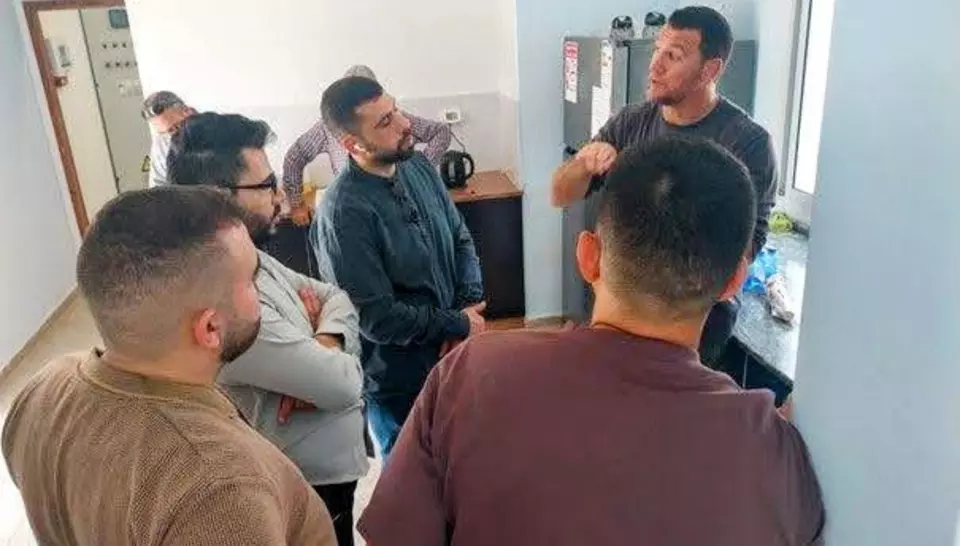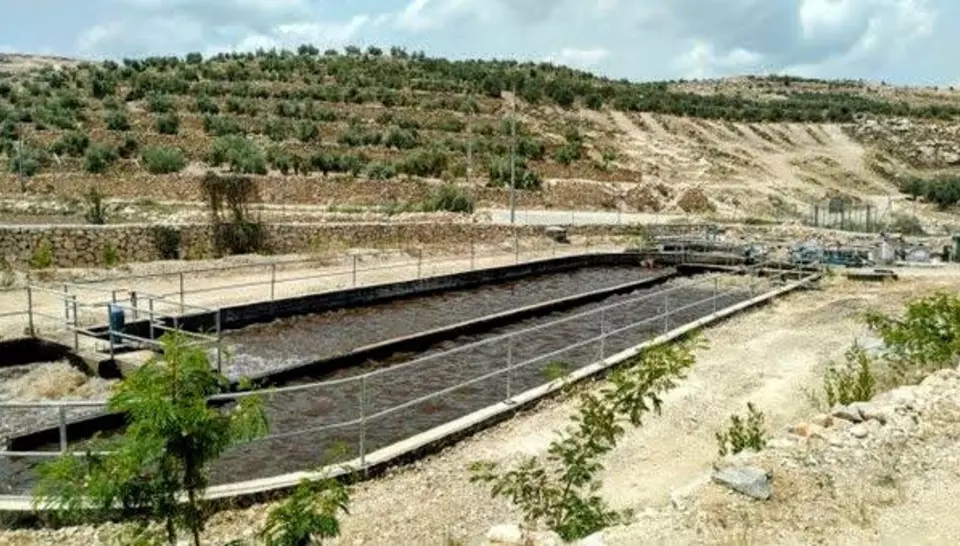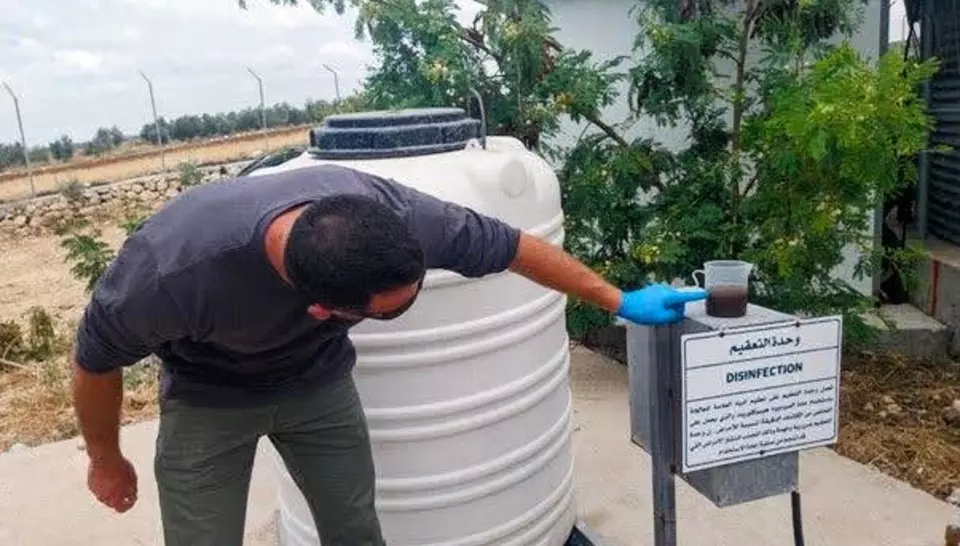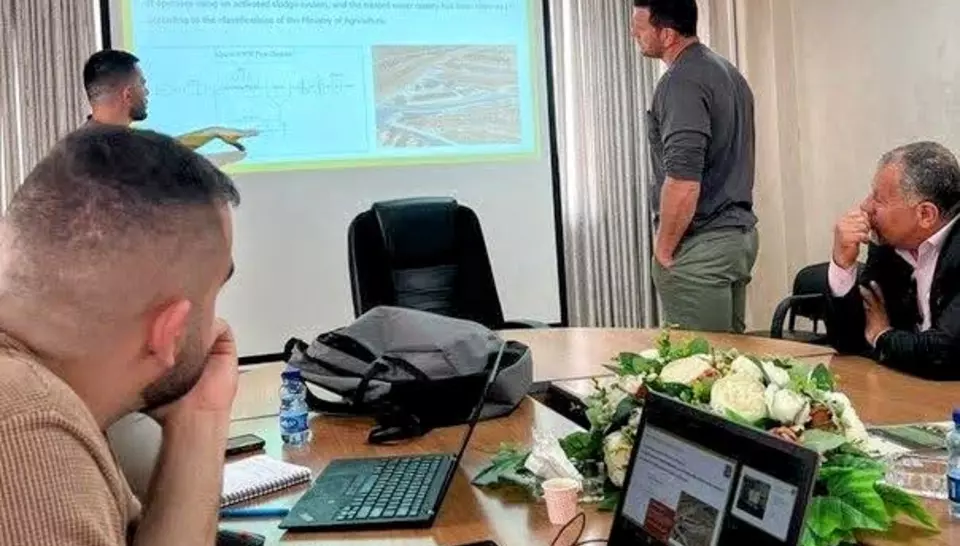In May 2025, Jean-Paul Dubois, a Veoliaforce expert from Epur (Veolia Water), went on a mission with the NGO Experts Solidaires. He spent a week in the West Bank to diagnose two wastewater treatment plants (WWTPs) located in Kharas and Tayassir, two infrastructures at the heart of an ambitious project to reuse treated wastewater for agricultural purposes.
Story about wastewater reuse in the West Bank: ‘a matter of survival’ for Jean-Paul Dubois.
What project were you assigned to?
Jean-Paul Dubois: The NGO Experts-Solidaires is leading an ambitious project: in a context of limited access to water, the reuse of wastewater should enable its use in agriculture. However, when it comes to REUT, EPUR has around forty references. So we could be of use to them.
Were you already familiar with the NGO Experts-Solidaires before this assignment?
J.-P.D.: Two years ago, Experts-Solidaires came to visit our wastewater treatment plant in Narbonne-Plage, and in particular the pioneering REUT project, Irri-Alt'Eau (see box). We had a lot of discussions on that occasion, especially as I am familiar with the humanitarian sector. Before taking over as head of Epur, a subsidiary of Veolia Water, I spent five years at the ICRC, the International Committee of the Red Cross, which sent me on missions to work on issues of access to water in South Sudan, the Philippines and then Iraq. Once the discussion got underway, I referred them to the Veolia Foundation, which I knew would be the right point of contact within our organisation for organising skills-based sponsorship.
What did your mission involve?
J.-P.D.: In Tayassir, REUT is already up and running, and they want to roll it out more widely. In Kharas, the context is different: the infrastructure is not yet fully developed. But at both sites, the teams are incredibly motivated. I only spent a week there, but it was a very productive week! Thanks to the excellent preparation by Experts-Solidaires, we were able to answer many questions and plan for the future.
What do you mean?
J.-P.D.: The audits carried out highlighted several points: infrastructure issues, and therefore work to be carried out on site; the need to improve plant management and therefore to train staff; and finally, authorisations that still need to be obtained for the Kharas site.
Administrative authorisations?
J.-P.D.: The territories in which we operate may fall under zones A, B or C, between the Step and the cultivated areas, which means different modes of governance between the Palestinian Authority and the Israeli authorities. For us, REUT is territorial. In the West Bank, it becomes geopolitical. And for the local populations, it is above all a question of survival.
Are you still following the project?
J.-P.D.: Yes! With Experts-Solidaires, we are planning to train staff from the Kharas and Tayassiret stations, probably in France. I would love to go back, but a mission there seems complicated at the moment. To be honest, I didn't think I would miss it so much.
Actions carried out during this first mission
- A complete technical diagnosis of the two WWTPs was carried out to identify the levers for improving treatment;
- Concrete recommendations were formulated to stabilize water quality and enable its safe reuse in agriculture;
- A close working relationship was established with local technicians, with a view to transferring sustainable skills.
A project supported by a variety of stakeholders, particularly French ones
This Veoliaforce mission is part of the project ‘Integrated Water Resource Management and Improvement of Living Conditions for Rural Households in the West Bank’, funded by the French Development Agency (AFD), the Rhône Méditerranée Corse Water Agency, the Occitanie region and the Montpellier local authority. This project is being implemented in partnership with the municipality of Les Mees (France), the Joint Service Council of North Hebron, the Toubas Water Utility and the Palestinian NGO Al ARD.
The Irri-Alt'Eau project
The project uses water that has already been treated by the Narbonne-Plage water treatment plant, located near the vineyard. Two containers filter the water a second time and treat it against bacteria. The water is then distributed through a seven-kilometre pipe network. Forty hectares of vines are connected to the drip irrigation system. Thirteen mini-terminals redistribute the treated water to the vineyard plots using an application that allows remote control of the system. Ultimately, 80 hectares will be covered.






